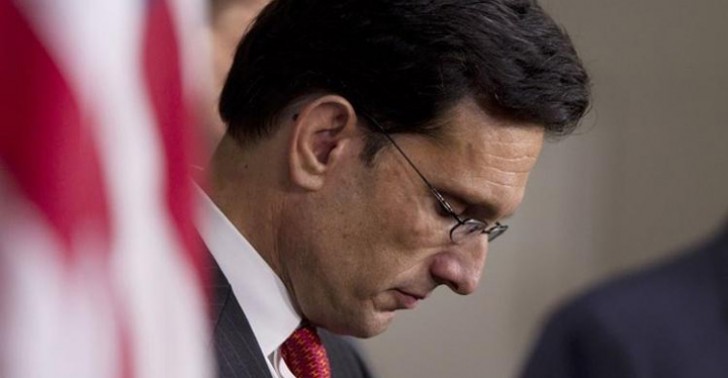
Cantor lost. Now Obama must act on immigration.
By now you have heard. House Majority Leader and U.S. Rep. Eric Cantor, of Virginia, lost his seat and his rising conservative star status. Whether or not his duplicitous role in immigration reform is the reason for his loss, many are calling Cantor’s primary upset the death of immigration reform. President Obama claims he “fundamentally rejects” this notion. But if Cantor’s defeat truly means that the fight to fix a broken immigration system is on its deathbed, then it is up to the President to resuscitate it. He can only do that if he acts swiftly to stop the separation of immigrant families via the deportation machine he has virtually complete control over.
In the real world of politics, there was never anything imminent about a fix in immigration law in the first place. True, Republicans left the last election believing in earnest that they can’t win the White House in 2016 without winning the Latino vote. And they also honestly believe that they can’t win the Latino vote without dealing with immigration in a way that makes immigrant-friendly voters forget the names Sensenbrenner, King, Tancredo and Smith. But, whether accurate or not, the GOP does not honestly believe that Latino voters, immigrant friendly voters or anyone but their most conservative voters are coming out to vote during the midterm elections. In fact, they are betting on it and betting on winning big this November. Cantor’s loss this week only confirms what most of the GOP already believe about who will and won’t vote five months from now. With this calculation in mind, it never made much sense for Republicans in the House to hurry up and pass an immigration bill before the midterms.
Only two things could disrupt this equation: A) If Latino and pro immigrant voters gave any indication that they were going to rush to the polls in large numbers for midterm elections; or B) (related to A) if the President acted executively to stop deporting immigrant friendly voters’ parents, friends and neighbors, forcing Republicans to respond (positively or negatively).
As much as I hope that A will happen, there is enough evidence to suggest the pro-immigrant vote lost faith in Congress and the President and aren’t in any rush to support either party at the polls.
The President has done little on his part to spark any sort of enthusiasm amongst voters who fundamentally want to see a better immigration system. Instead, the most powerful man in the world spent much of his first term in office consistently feigning powerlessness over the deportation juggernaut unleashed by his own agencies (ICE, CBP). It was his need to beat Mitt Romney in 2012 with the help of the Latino vote that left him feeling suddenly empowered to temporarily halt the deportation of immigrant youth now ubiquitously know as DREAMers. But the possibility of an imminent bipartisan legislative fix after the 2012 election enabled the President to reclaim his powerlessness along with his title of Deporter-in-Chief.
Just a few weeks ago, after the overwhelming majority of immigrant rights organizations crystallized a consensus that the President had to act immediately, Obama announced that he was slowing down the search for executive solutions to the deportation problem. The handful of advocates that endorsed the President’s step cited the need to give House Republicans “space” to work on a bi-partisan solution. House Republicans responded to the overture graciously, by accusing the President of playing politics. But if the President’s words this week are any indication, he will continue, unless otherwise pressured, to hold on to a fantastic hope, too delusional to be described as audacious, that a legislative fix to our immigration system is imminent. All the President needs to do in this scenario is give Congress “space” to do nothing while he deports more people.
If Cantor’s loss and the conversation around it are proof of anything, it is that no one, not even the same organizations that encouraged the President to give the GOP “space” believe anything resembling Comprehensive Immigration Reform is possible before the midterms.
That leaves the President with two options. One is to continue the status quo of separating more families while waiting in vain for House Republicans to crank out an immigration fix. The second is to act within his executive powers and find as many concrete and coherent ways to ease the suffering of immigrant families without violating the rule of law.
Executive action can look a million different ways, something I can write about at a later date if needed. But no one should have to convince a former Constitutional scholar that legal concepts like “plenary power” and “prosecutorial discretion” give him way more power to do the right thing than he would like to admit.
At this point the President needs to act, not just because it is the right thing to do, but because it may be the only thing to do besides creating more carnage in immigrant communities.
Subhash Kateel is an activist who lives in Miami and often comments for his own blog, Let’s Talk About It. Subhash also hosts a weekly talk show on radio also called Let’s Talk About It.

